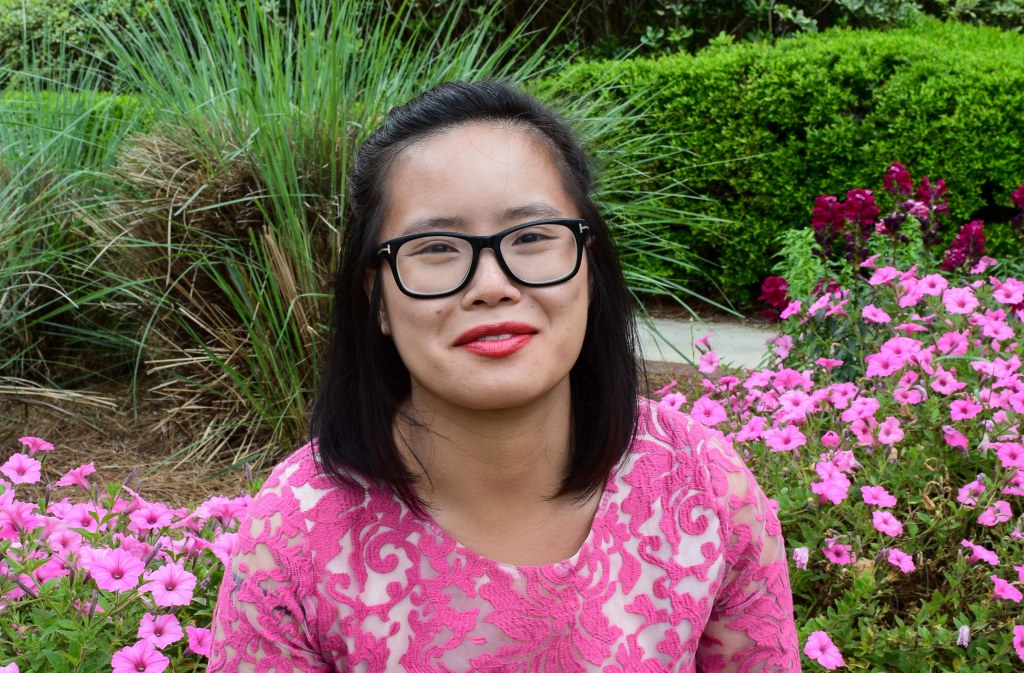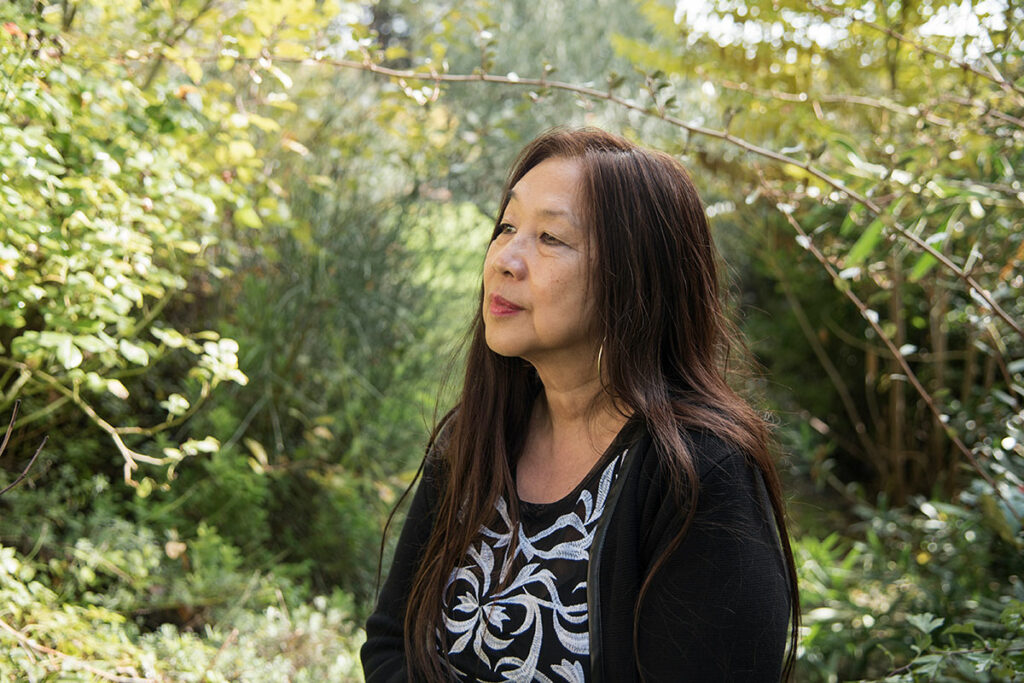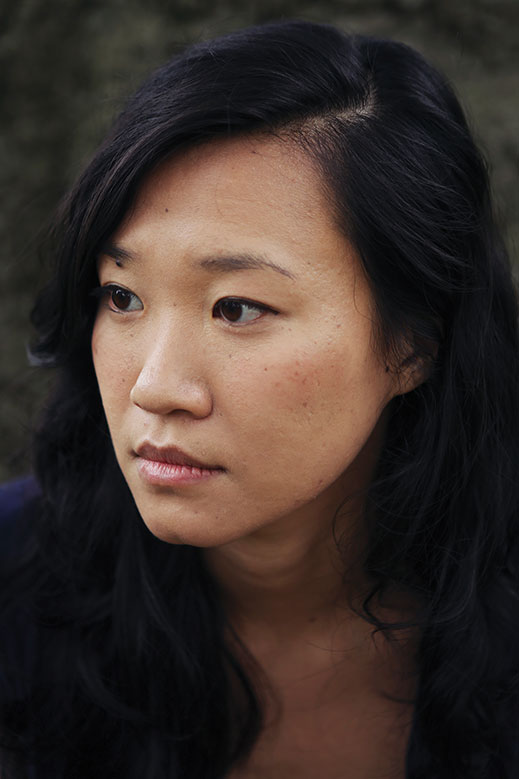May is AAPI Heritage month, and a time for AAPI and BIPOC communities to come together, joining forces as one. This month, we should celebrate the many historical contributions of our Asian American and Pacific Islander brothers and sister. For AAPI month I would like to share a few poems from AAPI poets.

Dorothy Chan~
Dorothy Chan’s Chinese identity is a great part of her poetry. Dorothy is an editor for Hobart, and a professor at the University of Wisconsin-Eu Claire. Her poems speak of culture, interracial romance, identity and the exploration of how food can serve as a bridge between multigenerational family relationships. Dorothy Chan also founded the journal Honey Literary to publish works by women of color, looking deeper into the intersection between gender and ethnicity.
So Chinese Girl~ Dorothy Chan
Anyone who makes tasty food has to be a good person,
because think of all the love that goes into cooking:
salt and pepper, sprinkle a little extra cheese, and pop open a bottle
of Syrah, or if we’re eating at my parents’ in Las Vegas,
we’re drinking Tsingtao beer, my father’s favorite, and he adds more
bamboo shoots and straw mushrooms and baby corn,
and fun fact: When I was a baby, I’d eat only corn and carrot-flavored
mush, and now, my dad adds more to the Buddha’s Delight,
a vegetarian dish from China, and I think about my aunt
in Hong Kong, who, once a year, buys fish from restaurants,
only to release them back into the sea—eat tofu,
save a life—but back to the dinner scene in Vegas,
my mom is making her Cantonese lobster, extra garlic and ginger,
and I grew up licking lobster shells for their sauce,
I grew up waking up during summer vacations
to my mother wearing a headband, warding off the grease
from cooking crabs and shrimps, heads intact, and there’s something, just something
about my parents’ cooking that makes me feel
a little more like a Chinese girl, because I don’t live in Hong Kong,
and unlike my cousins, my daily stop isn’t Bowring Street Station,
where I could pick up fresh mango cake before it’s sold out,
or what about chocolate mousse cake in the shape of a bunny
or mini–dome cakes shaped like cows and pigs
or cakes shaped like watermelons and shikwasa and citrus mikans,
and who wouldn’t want custard egg tarts or hot dogs
wrapped in sweet bread or sesame balls, washing it all down
with cream soda, and I feel like that little Chinese girl
in Kowloon again, getting picked up by my grandpa
after preschool, ready to go junk shopping, and I’d come home
with shrimp crackers and a toy turtle aquarium and a snowman
painting and a dozen roses, and no, I don’t even like flowers anymore,
but there’s something, just something about thrifting
with my grandpa now at age twenty-eight that makes me feel
so Chinese Girl, the way he bargains in the stalls,
asking for the best, “How much for that Murakami-era Louis Vuitton belt?”
or “What about this vintage Armani?”
and it’s like that look he gives me at dim sum, after the sampler
of shumai and har gow and chicken feet and char siu bao comes,
and he tells me to eat everything, watches me chow down on
Chinese ravioli, and that face of his freezes in the moment:
“Eat more, eat more, eat more. Are you happy?”
And oh, Grandpa, I’m so happy I could eat forever.

Marilyn Chin~
Marilyn Chin was born in Hong Kong and raised in Portland, Oregon. She is the author of five poetry collections, and currently serves as a chancellor of the Academy of American Poets.
How I Got That Name~ Marilyn Chin
an essay on assimilation
I am Marilyn Mei Ling Chin
Oh, how I love the resoluteness
of that first person singular
followed by that stalwart indicative
of “be,” without the uncertain i-n-g
of “becoming.” Of course,
the name had been changed
somewhere between Angel Island and the sea,
when my father the paperson
in the late 1950s
obsessed with a bombshell blond
transliterated “Mei Ling” to “Marilyn.”
And nobody dared question
his initial impulse—for we all know
lust drove men to greatness,
not goodness, not decency.
And there I was, a wayward pink baby,
named after some tragic white woman
swollen with gin and Nembutal.
My mother couldn’t pronounce the “r.”
She dubbed me “Numba one female offshoot”
for brevity: henceforth, she will live and die
in sublime ignorance, flanked
by loving children and the “kitchen deity.”
While my father dithers,
a tomcat in Hong Kong trash—
a gambler, a petty thug,
who bought a chain of chopsuey joints
in Piss River, Oregon,
with bootlegged Gucci cash.
Nobody dared question his integrity given
his nice, devout daughters
and his bright, industrious sons
as if filial piety were the standard
by which all earthly men are measured.
Oh, how trustworthy our daughters,
how thrifty our sons!
How we’ve managed to fool the experts
in education, statistic and demography—
We’re not very creative but not adverse to rote-learning.
Indeed, they can use us.
But the “Model Minority” is a tease.
We know you are watching now,
so we refuse to give you any!
Oh, bamboo shoots, bamboo shoots!
The further west we go, we’ll hit east;
the deeper down we dig, we’ll find China.
History has turned its stomach
on a black polluted beach—
where life doesn’t hinge
on that red, red wheelbarrow,
but whether or not our new lover
in the final episode of “Santa Barbara”
will lean over a scented candle
and call us a “bitch.”
Oh God, where have we gone wrong?
We have no inner resources!
Then, one redolent spring morning
the Great Patriarch Chin
peered down from his kiosk in heaven
and saw that his descendants were ugly.
One had a squarish head and a nose without a bridge
Another’s profile—long and knobbed as a gourd.
A third, the sad, brutish one
may never, never marry.
And I, his least favorite—
“not quite boiled, not quite cooked,”
a plump pomfret simmering in my juices—
too listless to fight for my people’s destiny.
“To kill without resistance is not slaughter”
says the proverb. So, I wait for imminent death.
The fact that this death is also metaphorical
is testament to my lethargy.
So here lies Marilyn Mei Ling Chin,
married once, twice to so-and-so, a Lee and a Wong,
granddaughter of Jack “the patriarch”
and the brooding Suilin Fong,
daughter of the virtuous Yuet Kuen Wong
and G.G. Chin the infamous,
sister of a dozen, cousin of a million,
survived by everybody and forgotten by all.
She was neither black nor white,
neither cherished nor vanquished,
just another squatter in her own bamboo grove
minding her poetry—
when one day heaven was unmerciful,
and a chasm opened where she stood.
Like the jowls of a mighty white whale,
or the jaws of a metaphysical Godzilla,
it swallowed her whole.
She did not flinch nor writhe,
nor fret about the afterlife,
but stayed! Solid as wood, happily
a little gnawed, tattered, mesmerized
by all that was lavished upon her
and all that was taken away!

Jenny Xie~
Jenny Xie is the author of Eye Level, and winner of the 2017 Walt Whitman Award of the Academy of American Poets and a finalist for the National Book Award; and Nowhere to Arrive, recipient of the 2016 Drinking Gourd Prize. Jenny’s poems appear in Poetry magazine, the American Poetry Review, the New Republic, Tin House, and also found elsewhere. She earned her degrees from Princeton University and New York University’s Creative Writing Program, and has received fellowships and support from Kundiman, the Fine Arts Work Center in Provincetown, the Elizabeth George Foundation, and Poets & Writers. She is now a teacher at New York University.
Rootless~ Jenny Xie
Between Hanoi and Sapa there are clean slabs of rice fields
and no two brick houses in a row.
I mean, no three—
See, counting’s hard in half-sleep, and the rain pulls a sheet
over the sugar palms and their untroubled leaves.
Hours ago, I crossed a motorbike with a hog strapped to its seat,
the size of a date pit from a distance.
Can this solitude be rootless, unhooked from the ground?
No matter. The mind resides both inside and out.
It can think itself and think itself into existence.
I sponge off the eyes, no worse for wear.
My frugal mouth spends the only foreign words it owns.
At present, on this sleeper train, there’s nowhere to arrive.
Me? I’m just here in my traveler’s clothes, trying on each passing town for size.
Poetry has the power to bring healing to our world, it can keep alive family stories, and the traditions of culture. Poetry is an art form that anyone can read or listen to, to feel, to decorate their minds and their lives. It is a way of expressing the inner self to the outer world, it is a way to bring light into dark places and also to promote freedom, equality and change, which is very much needed in our world today.
Jarrelle
